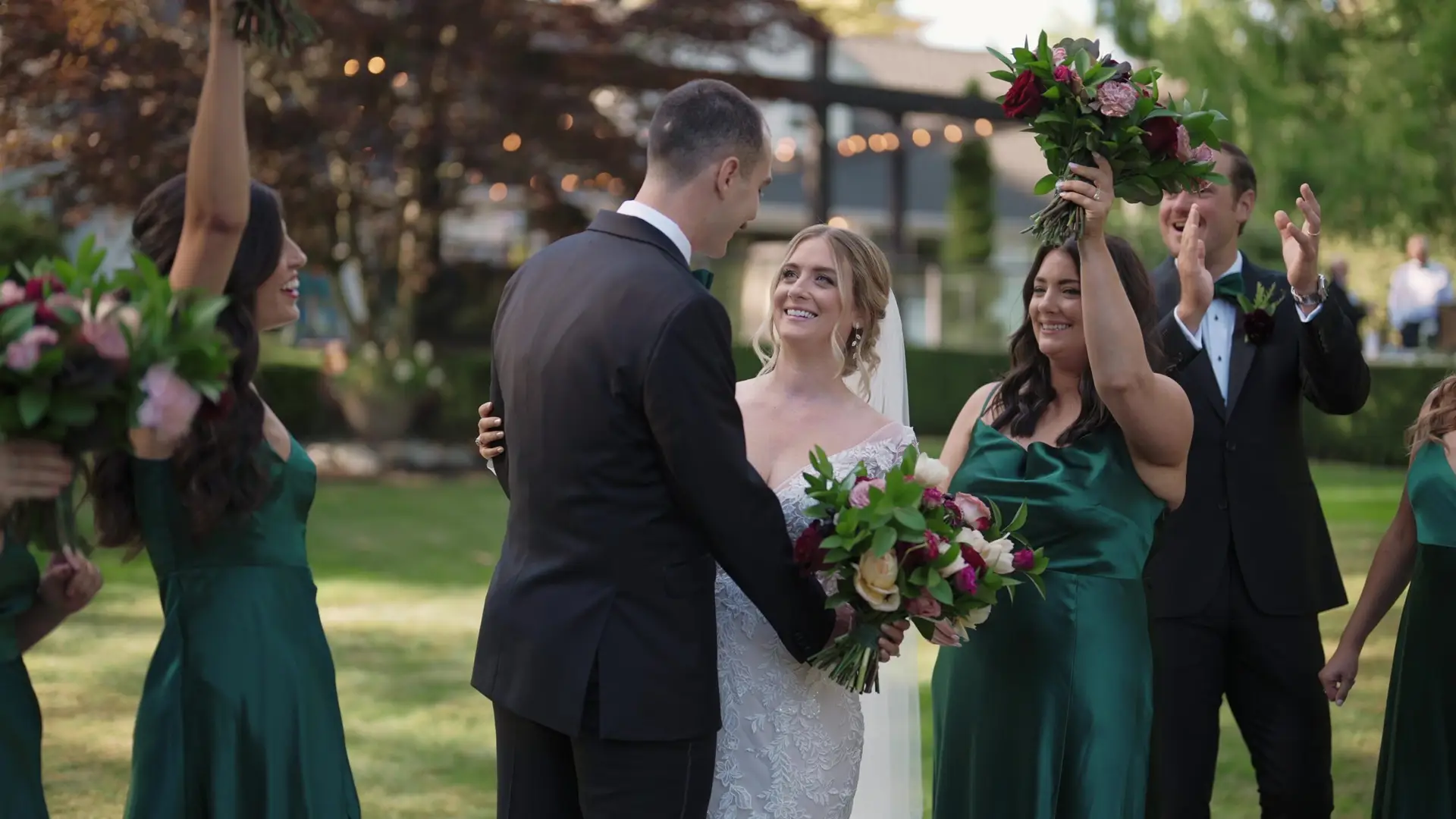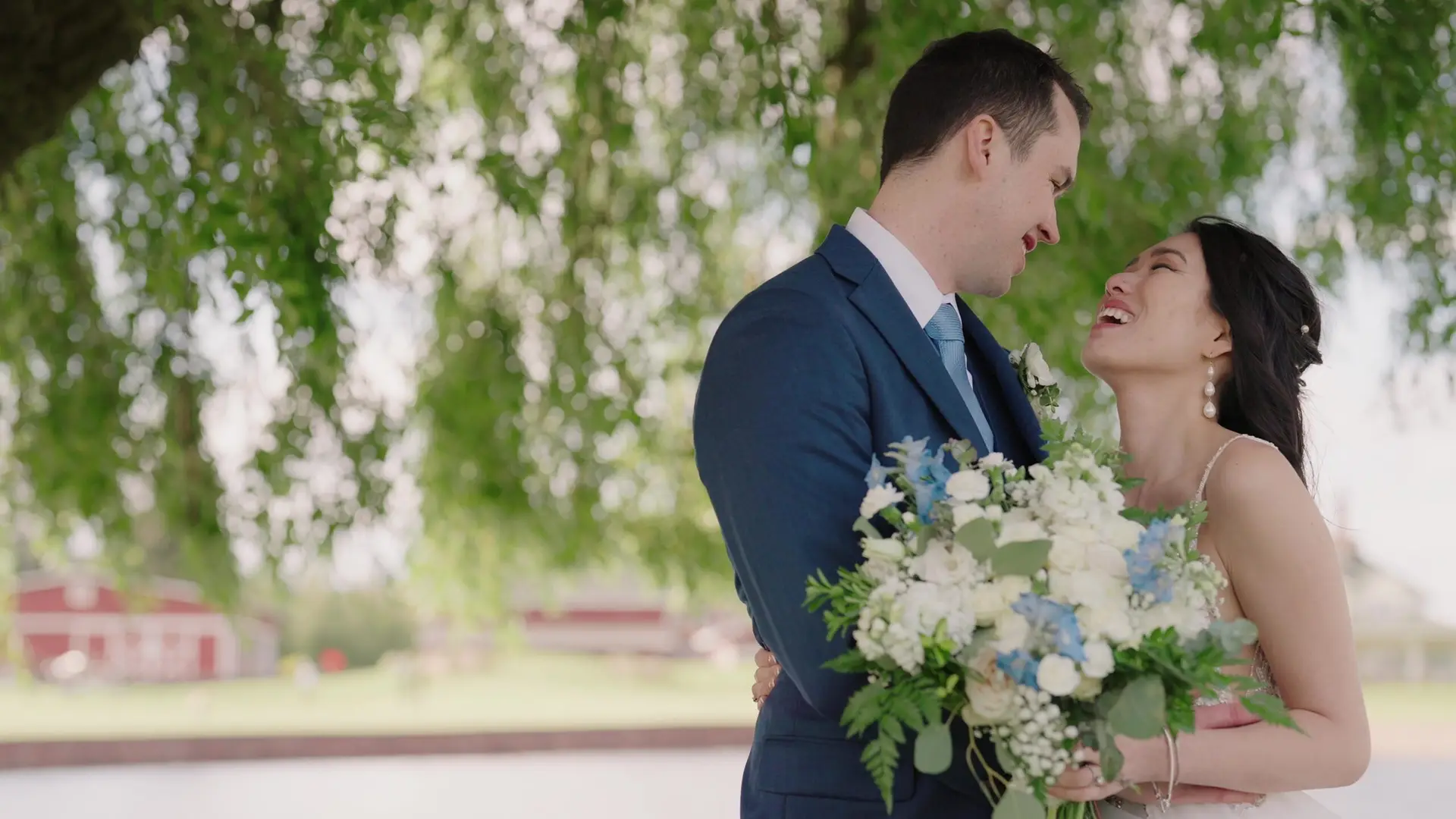You’re newly engaged with a sparkly ring on your finger, and the reality of whether you’re in Portland, Seattle, or anywhere in the Pacific Northwest, the wedding planning process can feel overwhelming at first. But choosing a wedding planner who understands your vision and works closely with you and their entire team can make this journey a lot easier and far less stressful. An authentic event planner not only helps with logistics but also promotes your unique style and ensures smooth execution on your special day. Importantly, selecting the right planner means aligning on preferred methods of communication and involvement, so you feel supported every step of the way.
This guide will inspire you with practical tips and insights tailored for couples in Oregon and beyond, helping you confidently find the perfect planner who will turn your dream wedding into reality.lanning a wedding is sinking in. One moment you’re blissfully pinning bouquet ideas; the next, you’re wide awake at 2 A.M. juggling guest lists, venue tours, and vendor contracts. If you’re feeling a mix of excitement and overwhelm, you’re not alone. Planning a luxury wedding involves hundreds of decisions, and you want everything to be just right. This is where a great wedding planner can feel like a fairy godmother.
But how do you choose a wedding planner who truly gets your vision, eases your stress, and elevates your big day? In this guide, we’ll walk through wedding planner tips for discerning brides – from an empathy-driven mindset in the beginning to the specific questions to ask a wedding planner before you sign on the dotted line. Our goal is to help you find “the one” (your planning partner, that is) with confidence, so you can savor your engagement and step into your wedding day with peace of mind.
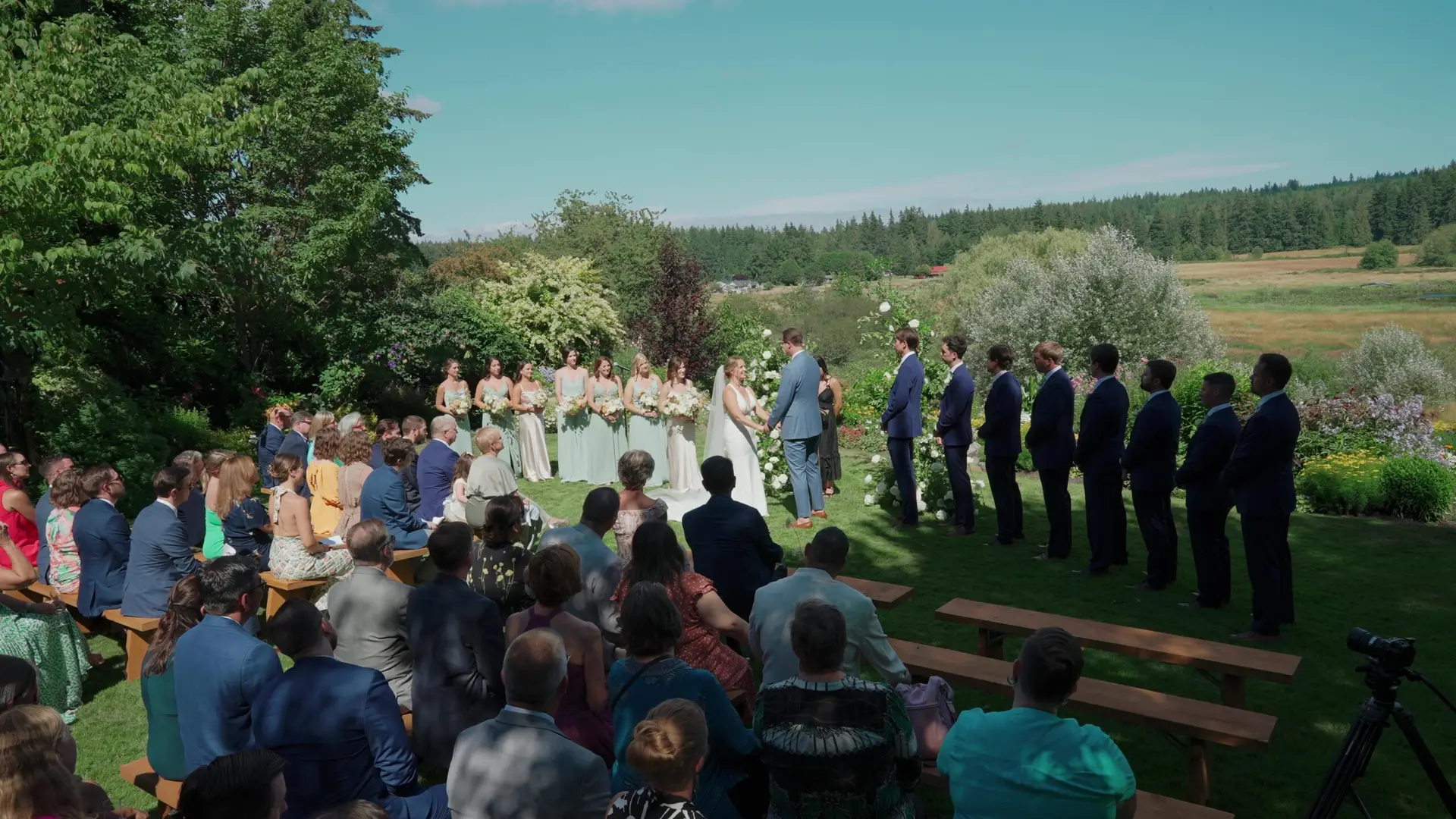
Clarify Your Wedding Vision and Priorities
Before you even start looking for a planner, take a step back with your fiancé and envision what you both truly want. Think of this as laying the foundation for a successful planner search. Grab a couple of glasses of wine and have an honest chat about your wedding priorities. What matters most to you on the big day? Is it an intimate ceremony on a cliffside, a show-stopping ballroom reception with gourmet food and wine, or a laid-back luxury fête where guests dance under the stars? Identifying your top priorities will help guide everything else. For example, maybe you both agree that great food, signature cocktails, and a killer live band are must-haves, or perhaps ambiance and decor top your list while you’re less concerned about having a towering cake. There’s no right or wrong answer – only what matters to you as a couple.
Next, define your wedding style and aesthetic (or even what you don’t want). Are you drawn to modern minimalism, enchanted by romantic fairy-tale vibes, or dreaming of an ultra-sleek city chic celebration? It’s okay if you don’t have every detail pinned down – that’s often part of what a planner helps with – but try to spot patterns in what you both love. You might realize you keep saving images of lush greenery and chandeliers, or that you absolutely can’t stand the idea of burlap table runners. (Sometimes listing your “nope, not for us” items is as helpful as listing your must-haves.) By narrowing in on a general style or theme, you can seek out planners who specialize in that vibe.
Don’t forget the practical pieces, too: budget, guest count, and level of service you need. High-end weddings can vary greatly in budget; decide early on a comfortable range for your overall wedding spend and how much of that you’re willing to allocate to a planner. (Industry surveys suggest couples put aside roughly 5-10% of their budget for a planner, but it’s about what feels worthwhile to you.) Also consider whether you want a full-service planner to handle everything from day one, or if you only need partial planning or a month-of coordinator for support in the final stretch. Knowing your needs will help you target the right professionals – for example, some planners excel at complete event design and logistics, while others offer à la carte packages if you’ve done some legwork already.
In short: get on the same page about your vision and priorities before bringing in a pro. This clarity will make it so much easier to find a planner who aligns with your expectations. As luxury copywriter Kaitlyn Parker advises creative clients, “map out what you offer, who it’s for, and why it matters before writing a single line” – in this case, before dialing a single planner’s number. When you know what you’re looking for, you can more confidently evaluate whether a planner is the right fit to bring your dream day to life.
Research and Gather Recommendations
With your vision in mind, it’s time to explore your options for potential wedding planners. Think of this like dating – you’re looking for candidates who could be “the one” to plan your big day. Start by casting a wide but strategic net:
- Tap Your Venue and Vendors: One of the best ways to find trustworthy planners is through your wedding venue’s recommendations. High-end venues often have a list of preferred or required planners who know the space inside-out. This can be a huge plus, since a planner who’s familiar with your venue’s layout, staff, and quirks can hit the ground running. Similarly, if you’ve already booked other vendors (photographer, caterer, etc.), ask if they’ve worked with any planners they love. The wedding industry is a tight-knit world, and a talented planner likely has impressed many vendors along the way.
- Ask Recently Married Friends: Personal referrals are gold. Did you attend a friend’s wedding that was executed flawlessly and without visible stress? If so, text that friend now and ask who their planner was! About 21% of couples find their planner through a referral from family or friends. There’s nothing like a first-hand account to reassure you. When talking to your married friends, dig for details: Did the planner communicate well? Handle crises with grace? Make the planning process enjoyable? If your friend gushes, “I literally don’t know how we’d have done it without her – she was a calming influence and on top of every detail,” that’s a planner worth considering.
- Search Wedding Websites and Marketplaces: Use popular wedding resources to your advantage. Sites like The Knot and WeddingWire allow you to filter planners by location, style, budget, and even read reviews. These platforms are basically bridal marketplaces where top-rated vendors showcase their work. Browse through portfolios and vendor profiles. Pay attention to planners who have experience with luxury weddings or whatever specifics matter to you (e.g. destination planning, cultural expertise, etc.). The Knot’s data shows nearly 1 in 5 couples find their planner through online wedding sites, so it’s a tried-and-true method. Just remember: gorgeous photos are a starting point, but you’ll want to dig deeper on fit – which we’ll get to soon.
- Stalk Them (Politely) on Social Media: In today’s world, a planner’s Instagram, TikTok, or YouTube presence can reveal a lot about their style and personality. Follow the planners you’re interested in and scroll through their feeds. Are the weddings they post similar to the vibe you want? Do they share behind-the-scenes Stories that showcase how they work or solve problems? Many planners use social media to offer tips or a peek at their personality – take advantage of that. If you see a planner consistently interacting warmly with followers and showcasing beautiful, unique events, that’s a great sign. It’s almost like a virtual interview. As one expert planner notes, these platforms let you “sit back and get a sense of the planner’s personality, work, and how helpful or insightful they are” before you even reach out.
- Leverage Bridal Blogs and Magazines: High-end bridal blogs (think Style Me Pretty, Brides.com, etc.) often feature real weddings and credit the planners who pulled them together. If you find a featured wedding that makes your heart skip a beat, note the planner’s name. Luxury wedding planners are frequently published in magazines or blogs for their innovative designs. You might discover your dream planner by reading a “dream wedding” story and realizing someone had to orchestrate that magic behind the scenes.
As you gather names, aim to create a shortlist of 2-3 planners who seem promising. Too many options can get overwhelming fast. By narrowing your list, you can give each candidate the focused attention they deserve. Make sure each planner on your list is available for your wedding date (many in-demand planners book out a year or more in advance, so check availability early in the conversation). You’ll also want to ensure they work in your locale or are willing to travel if it’s a destination wedding.
Finally, do a quick initial screen: visit their websites for more info and vibes. A planner’s website copy, portfolio, and even their about page tone will tell you a lot. Are they formal and ultra-posh, warm and friendly, creative and quirky? Trust your gut on what appeals to you. If a site’s wording and images speak to you (perhaps the way they describe their approach makes you feel at ease, or their gallery looks like your Pinterest board come to life), keep them on the list. If not, it’s okay to move on. You’re looking for someone who resonates with you on both a style and personality level.
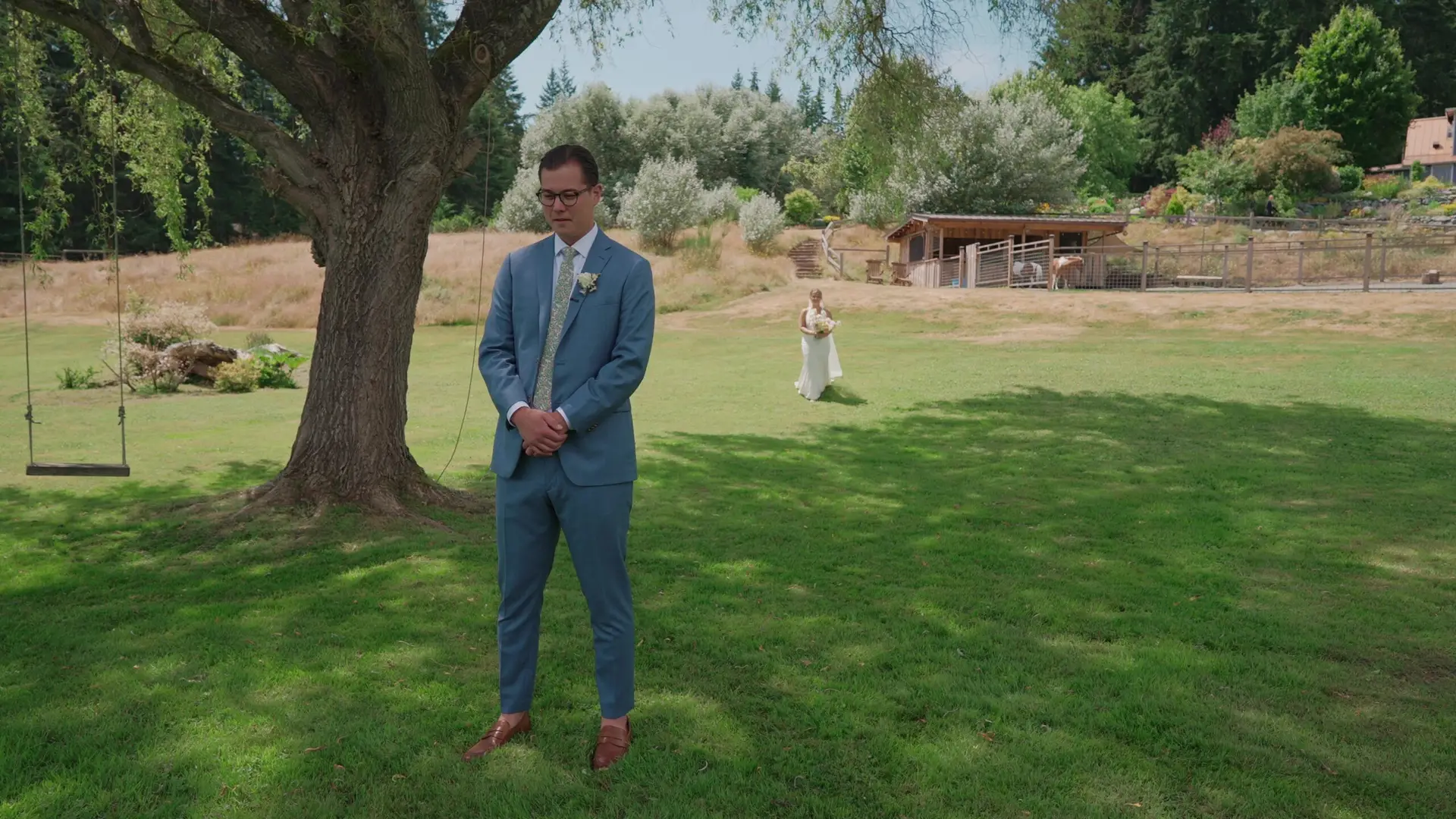
Vet Planners’ Style, Experience, and Reputation
Now that you have a shortlist, it’s time for some due diligence. This step is all about vetting each planner’s qualifications and compatibility with your needs. Think of it as investigating the “resume and references” of each planning pro – but also using your heart to sense if they fit your wedding vision.
Review Their Portfolio and Aesthetic: Start by doing a deep dive into each planner’s portfolio or gallery. Do the weddings they’ve planned look like the kind of wedding you want? Pay attention to the details in their photos: the quality of decor, the smiles on the couple and guests, the overall atmosphere. If every wedding in their gallery exudes that ultra-glam, magazine-worthy look you’re aiming for, fabulous. If you prefer something intimate and understated, see if they showcase that style too. The key is to find a planner whose design sensibilities align with your vision. Some planners pride themselves on being chameleons who can execute any style, while others have a signature look (e.g. rustic elegance, modern luxury, etc.). Neither is wrong, but you’ll feel more at ease if you know they “get” your preferred style. As one luxury planner put it, when choosing a modern wedding planner, it’s vital that you ‘get’ each other – your planner needs to interpret your vision and make your wedding look great, not just run smoothly.
Check Experience and Expertise: Experience isn’t everything, but it definitely helps. Planning a high-end wedding is a big undertaking, and you likely want someone who’s navigated that terrain before. Look for clues about how long they’ve been in business and how many weddings they’ve orchestrated. Don’t be shy about asking this in an interview: “How many weddings have you planned, and what types of weddings do you specialize in?” A seasoned planner who has done, say, 50+ weddings (including events similar in size or cultural tradition to yours) will bring valuable know-how to the table. They’ll know how to avert common pitfalls and handle tricky logistics with a cool head. Also consider specialization – if you’re planning a destination wedding in Tuscany or a multicultural ceremony blending traditions, you might favor a planner who has specific expertise in those areas.
Another aspect of expertise is credentials and affiliations. Many top planners are members of professional associations or have certifications (like from the Association of Bridal Consultants or Wedding Planners Institute). While paper credentials aren’t mandatory, they can signal a commitment to the profession. For instance, a planner who is a member of a wedding association likely pursues continuing education and adheres to a code of ethics. It’s not a make-or-break factor for most brides, but if someone touts being a “Certified Master Wedding Planner,” you’ll know they’ve invested in their craft.
Assess Their Industry Connections: One often overlooked benefit of a great planner is their network. The best planners have a “little black book” of trusted, high-quality vendors – from florists to DJs to invitation designers. These relationships can seriously work in your favor. A well-connected planner can assemble a dream team of vendors that you might never have found on your own, sometimes scoring you preferred pricing or priority service because vendors love working with them. As one luxury planner noted, by hiring a planner you essentially gain “access to their established network of top quality, highly dependable contacts”. So, when vetting planners, listen for cues about their vendor relationships. Do they drop the names of reputable photographers or caterers they enjoy working with? Do they seem dialed-in to the local wedding scene or the destination’s vendor pool? A planner who is respected by other vendors is likely someone who is organized, professional, and produces fabulous events (vendors talk – if a certain planner’s events are chaotic, that reputation gets around). Plus, a team that knows each other can collaborate more seamlessly on your wedding day.
Read Reviews and Call References: In the luxury market especially, reputation is everything. Take some time to read through client testimonials on the planner’s website or on review sites. Look for patterns in what past couples say. Words like “detail-oriented,” “responsive,” “calming,” “worth every penny” are music to an anxious bride’s ears. If you spot any red flags (like mentions of poor communication or budget surprises), make note to address those topics if you speak with the planner. Don’t hesitate to ask for references of past clients and then actually reach out to them. A brief call or email with someone who used that planner can provide invaluable insight. You might ask, “What was it like working with this planner? Did they deliver on what they promised? What was the best and toughest part of the experience?” Listen not just for glowing praise but also for any hesitations. And remember, one lukewarm review among a dozen rave reviews doesn’t necessarily kill the deal, but consistent feedback will paint a realistic picture.
Compatibility and Communication Style: Finally, as you vet a planner’s professional credentials, start gauging the more personal aspect: how well might you click with this person? You could find the most experienced planner in the world, but if their style of working clashes with your personality, it may not be worth it. Consider what style of communication you prefer. Are you someone who wants a lot of hand-holding and frequent updates, or do you prefer a planner who handles things autonomously and only checks in for big decisions? Maybe you live by email and hate phone calls, or you love texting. Ensure the planners you’re considering can accommodate that. Some planners are very formal and maintain clear office hours for calls/emails, whereas others might be fine with the occasional late-night text. There’s no one-size-fits-all; it’s about matching your expectations. The Knot’s experts suggest straight-up asking a potential planner “What is your communication style?”, because you’ll be working with them for months and you don’t want to feel ignored or frustrated.
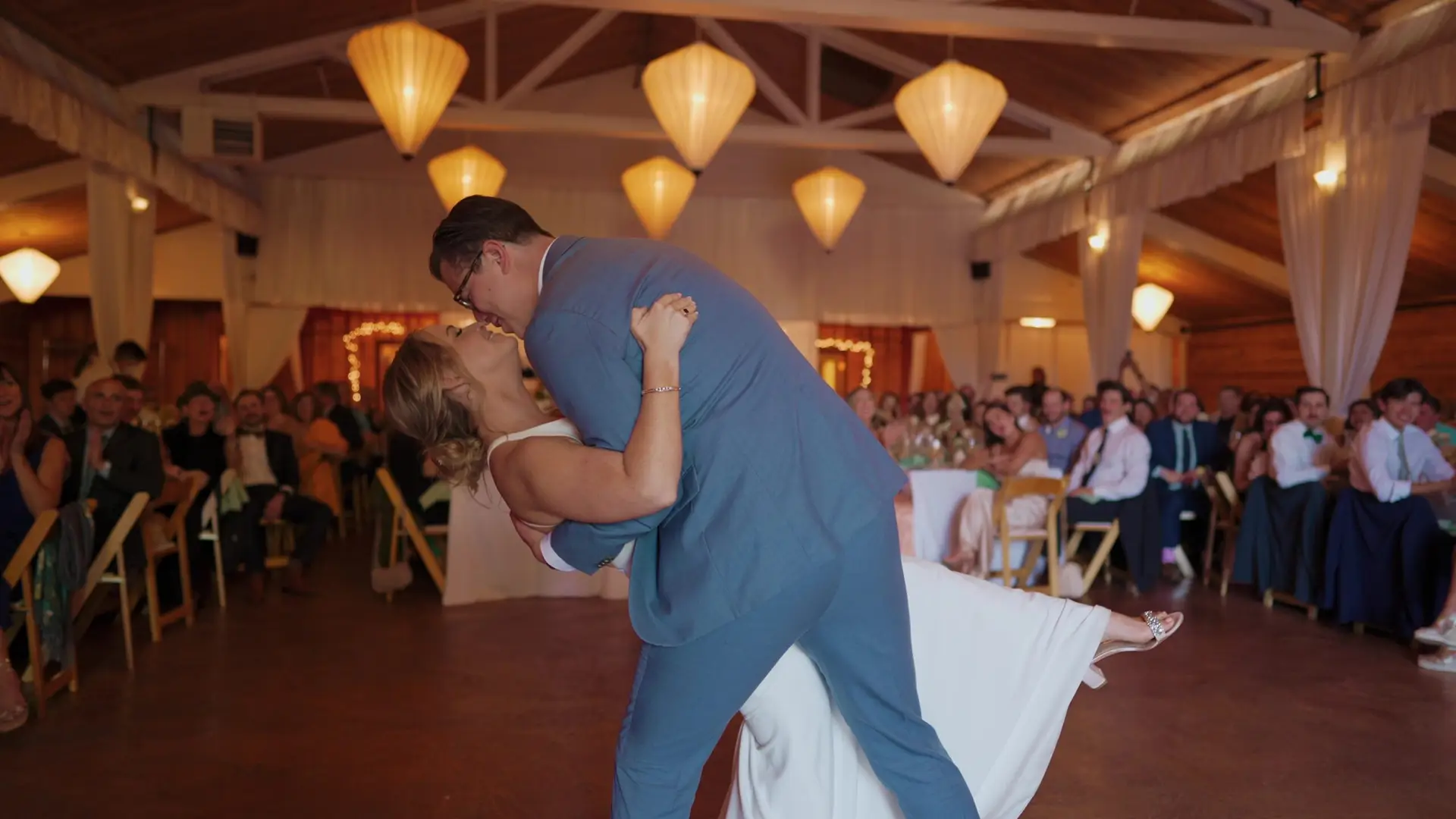
Pro Tip: Create a quick “planner vetting checklist.” Here’s an example of key factors to evaluate for each candidate:
- Style & Aesthetic Fit: Does their portfolio align with your desired wedding look? Do they inspire you with their past work?
- Experience: How many years/weddings have they worked on? Have they done events similar to yours in size or cultural style? Testimonials/References: Do past clients sing their praises? (Bonus if clients mention that the planner made the process fun and stress-free.)
- Vendor Network: Are they well-connected with reputable vendors and venues? This can save you time and elevate quality.
- Professionalism: Are they licensed/insured and possibly certified or part of industry groups? It shows commitment to their profession.
- Gut Feeling on Fit: Can you picture trusting this person with your wedding? Do you sense positivity, creativity, and reliability in your interactions so far?
By the end of this vetting stage, you might find one planner is already standing out as a favorite – or perhaps you have two neck-and-neck. Either way, the next step will be crucial in making the final call: the face-to-face (or Zoom-to-Zoom) interview.
Interview Your Shortlist and Ask the Right Questions
Nothing substitutes for an actual conversation when it comes to choosing your planner. This is where you move from researching on paper to feeling out the chemistry in real life. Most planners offer an initial consultation – often a free video call or coffee meeting – to get to know each other. Treat this like a first date mixed with a job interview: it’s both about personality match and verifying professional chops.
Prepare for the Consultations: Schedule a meeting with each planner on your short list (ideally not all on the same day, so you have time to reflect between them). Come to each meeting prepared with a list of questions and any pertinent info about your wedding (date, approximate budget, rough guest count, any must-haves). It helps to share upfront what you’re looking for and see how the planner reacts or adds ideas. Pay attention to whether they listen actively – a great planner will want to understand your needs deeply and will ask you questions too, like what your priorities are or what you’ve done so far. This is a good sign that they’re detail-oriented and care about personalizing their service.
During these conversations, observe the dynamic. Do you feel comfortable talking with them? Do they instill confidence and calm, or do they seem rushed and distracted? Remember, this person (and their team) will be by your side throughout the planning journey and on the wedding day itself, possibly seeing you at some not-so-glamorous moments (wedding stress is real!). You want someone who brings out your best, who you feel you can be honest with, and who you trust to handle sensitive situations. As one wedding expert wisely put it, “Your wedding planner is the vendor you’ll be spending the most time with, so it’s important to pick someone who’s compatible with you and your fiancé”. Personality matters – if something feels off in your gut, heed that. As much as expertise is key, you also need a planner who vibes with your personal style (be it upbeat and bubbly or calm and steadfast).
Questions to Ask a Wedding Planner (Before You Hire) – Now, let’s talk about the questions. You’ll want to ask each potential planner a consistent set of questions so you can compare their answers later. Focus on things that reveal their experience, approach, and how they’ll work with you. Here’s a checklist of smart questions to ask a prospective wedding planner:
- “Are you available on our wedding date?” – This might seem obvious, but it’s the first filter. If they’re already booked, it’s a non-starter. Also ask if they foresee any challenges with that date (e.g. other events that weekend, holiday issues, etc.).
- “What services do you offer – full planning, partial, day-of coordination?” – Ensure the level of help you need is in their wheelhouse. Clarify what’s included in each service tier. For example, does full-service include design assistance? Does day-of really mean they start a month before (as is often the case)?
- “How do you structure your fees?” – Money talk is a must. Do they charge a flat fee, an hourly rate, or a percentage of the wedding budget? When are payments due? A transparent planner will gladly explain their pricing structure. Make sure you’re comfortable with how they handle billing and any extra fees (e.g. travel or additional coordination for rehearsal dinner).
- “How many clients or weddings do you take on per year – and will we be your only wedding around our date?” – This gives insight into how much attention you’ll get. High-end planners often limit their bookings (some do no more than 10-12 weddings a year) to provide boutique service. If a planner is juggling too many events, you might worry about responsiveness. Also, if your date is adjacent to another big event they have, ask how they handle that (do they have separate teams, etc.).
- “Have you planned weddings similar to ours in style, size, or venue?” – You want to gauge their relevant experience. If you’re having a 300-person black-tie gala and they’ve only done intimate barn weddings, or vice versa, probe how they’ll bridge that gap. If you’re planning a destination or a cultural wedding with specific customs, ask if they have experience and what challenges they foresee. A seasoned planner will often respond with examples: “Yes, I’ve done a wedding at your venue and here’s what worked well…” or “I haven’t done that exact style but I’ve done X which is similar.” You’re looking for confidence and problem-solving here.
- “What is your approach to communication and coordination with clients?” – This is huge for your sanity. Find out how the planner prefers to communicate (email, phone calls, text) and how often you’ll have check-ins or updates. Ask about response times – “If I have a question, how quickly should I expect to hear back?” The answer will help set expectations. If you know you’re someone who needs a lot of handholding, look for cues like “I’m very hands-on and I update my clients weekly”. If you’re more independent, maybe you’re fine with “I set up monthly planning sessions and I’m available for questions in between”. Also inquire if they have office hours or if they’re available on weekends/evenings (especially if you work a 9-5 job and can only meet off-hours). The goal is to ensure their work style clicks with your life.
- “Will you personally be the one on-site managing my wedding day? Do you have a team or assistants?” – Some larger planning firms might assign an assistant or day-of coordinator separate from the lead planner. It’s important to know who will be with you on the wedding day. Ideally, the planner you build a relationship with is the same one coordinating when it counts, but if not, make sure you meet whoever will be running the show. Also ask how many staff members they’ll have on-site for your wedding (especially if it’s a large or complex event).
- “How do you handle vendors and do you have preferred vendors we must use?” – This question uncovers a few things. First, whether they require you to choose from their list of vendors or if they’re open to new ones. Second, if they take any commissions from vendors (some planners get referral fees – it’s not necessarily bad, but you want transparency). And third, how they approach vendor coordination: Will they attend vendor meetings with you, review contracts, manage payments, etc.? A great planner often acts as a liaison so you don’t have to chase down florists or caterers yourself.
- “How will you help us stay on budget and manage payments?” – Budget oversight is a big part of planning. Ask how they help clients with budgeting. Do they create a detailed budget breakdown for you? Will they keep track of payment schedules for each vendor? An experienced planner should confidently explain how they keep finances on track (and many will be honest upfront about whether your budget is realistic for what you want – which is invaluable input). Notably, seasoned planners often save couples money by steering them away from pitfalls and leveraging vendor deals. In fact, couples “typically underestimate their wedding budget by nearly 45%,” but an experienced planner can help you devise a realistic budget and even snag discounted rates from vendors you wouldn’t get on your own.
- “What was the most challenging wedding you planned, and how did you handle any problems that came up?” – This question gives a sense of their problem-solving skills and grace under pressure. Every wedding has something that goes awry – the real test of a planner is how they handle it. Their answer might reveal their contingency plans (for example, what they do if there’s a sudden downpour on your outdoor ceremony) and how they work under stress. Look for an answer that shows resourcefulness and a calm demeanor. You want to hear something like, “We had a power outage one hour before the reception, but I immediately contacted the venue’s manager and had a generator brought in – the guests never even knew!” This will give you confidence that if anything unpredictable happens, your planner has your back.
- “Do you have any references or former clients we could speak to, and can we see examples of full weddings you’ve planned?” – By this stage, they likely expect this question and should happily provide references (or at least point you to reviews) and maybe walk you through a case study of a past wedding. Seeing a real wedding from start to finish that they planned – either via photos or in an album – can help you picture what they delivered. Listen for enthusiasm as they describe their past work; a planner who loves what they do will light up talking about their favorite weddings.
Feel free to add any other questions that matter specifically to you (for example, if you’re eco-conscious, “Can you help us plan a sustainable/green wedding?” or if family dynamics are tricky, “Have you handled interfaith ceremonies or blended family situations?”). The goal is to come away from each interview with a clear sense of each planner’s approach and a gut feeling about who fits you best.
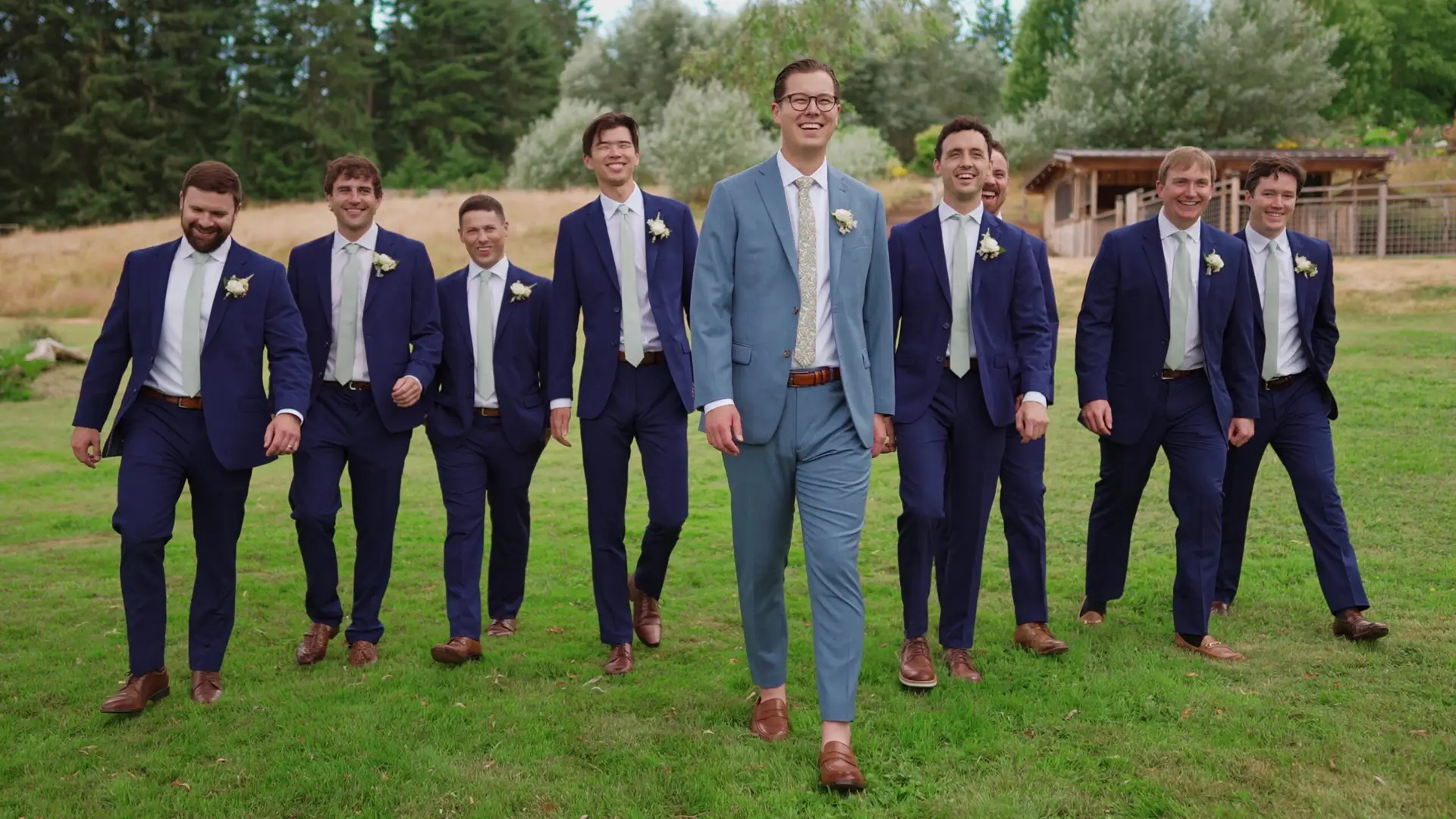
During the meetings, also note the questions they ask you. A top-notch planner might ask about how you met, what you value as a couple, or what your biggest sources of stress are. This shows they’re trying to understand not just the wedding, but you. As copywriting guru Ashlyn Carter emphasizes in her storytelling approach, great client relationships (like great copy) start with understanding and empathy – essentially showing the bride “I understand your dreams and challenges” before jumping into solutions. If a planner demonstrates that kind of empathy in your consultation, that’s a wonderful sign.
After you’ve completed all your interviews, take a moment with your fiancé to debrief. How did each meeting go? Who gave you that excited, relieved feeling that “this is the one who can make it happen”? Conversely, were there any answers or attitudes that didn’t sit right with you? Maybe Planner A dazzled you with her design ideas, but Planner B made you feel especially heard and calm. This is where you weigh head vs. heart. Remember, you’re looking for the best overall fit – someone with the expertise and the right energy to join you on this journey.
Conclusion: Choose with Confidence and Enjoy the Journey
Choosing a wedding planner is a big decision, but if you’ve made it this far, you’re already on the right track. You’ve clarified what you want, done your homework, vetted carefully, and asked thoughtful questions. Now, trust yourself. Listen to that inner voice and the evidence you’ve gathered. If one planner clearly stands out as the perfect partner for your wedding day, it’s time to joyfully say “Yes!” to that planner and entrust them with your vision. If you’re torn between two, consider having a second brief chat or looking back at your priorities to see who aligns just a bit more with what matters most to you.
Once you’ve chosen, take a deep breath – and get excited! A great wedding planner will not only execute your dream day, but also turn the planning process itself into part of the celebration. With the right planner by your side, you can enjoy your engagement without constantly feeling like a project manager with a never-ending to-do list. As one planning checklist puts it, even though hiring a planner is an added cost, the right one “often end up saving you money in the long run” and definitely saves you time and stress (priceless!). In other words, you’re investing in peace of mind and an unforgettable experience.
In the months to come, remember to maintain open communication with your planner, give feedback, and then trust their expertise. You chose them for a reason. Allow them to lift the weight off your shoulders – that’s what they do best. Soon you’ll be walking into your beautifully orchestrated wedding, champagne in hand, thinking, “Hiring this planner was one of the best decisions we made.” And you’ll be right, because you approached the process with clarity, confidence, and heart.
Here’s to an incredible planning journey and a wedding day that exceeds your dreams. With the perfect planner match, you’ve got this! Happy planning and congratulations on this exciting chapter ahead.
